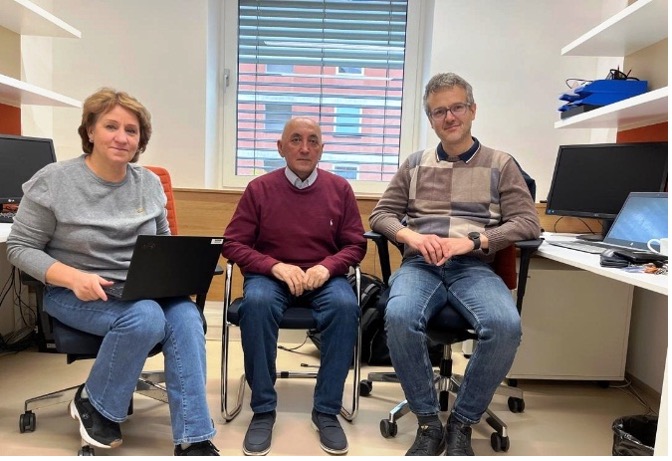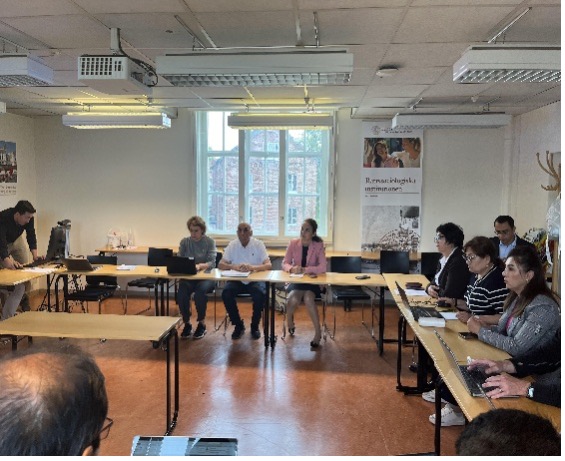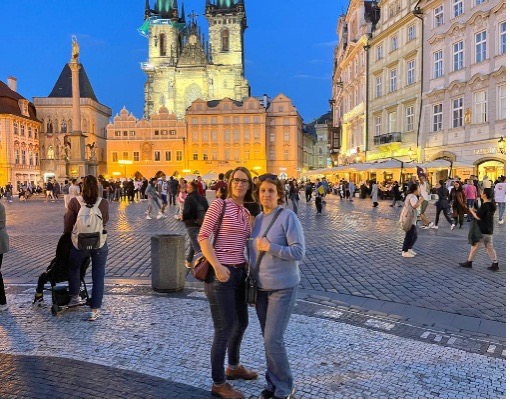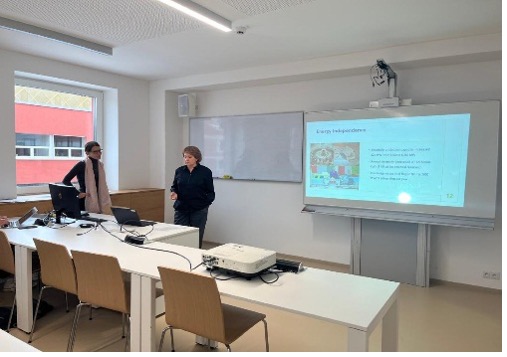My name is Zarina Kadyrova, and I represent the Tajik State University of Commerce in MOCCA project. I would like to share my experience from my secondment, which took place from August 19 to October 17 at Lund University in Sweden and Charles University in Prague, alongside my colleague, Dr. Ismattulo Ismatulloev.
First and foremost, I want to emphasize the significant importance of obtaining a visa, purchasing plane tickets, and securing accommodation in a timely manner while preparing for the secondment. Although my colleague and I successfully obtained our visas and bought our plane tickets, we only began searching for accommodation in Lund and Prague a month prior to our departure. This approach proved to be less than ideal, as finding suitable accommodation that fit our budget for a short duration (one month) turned out to be quite challenging. Therefore, I would like to take this opportunity to express my heartfelt gratitude to Elmurod Sobirov, Tolibjon Mustafoev (Lund University), and Anna Jordanova (Charles University) for their invaluable assistance in helping us find accommodation during our short secondment in Sweden (Malmo, Lund) and the Czech Republic (Prague).
Many researchers are drawn to the opportunity to conduct research abroad to expand their knowledge, gain new insights, test scientific hypotheses, establish patterns, and make scientific generalizations. This experience offers not only the chance to conduct research in an international setting but also serves as a valuable means of professional development. It enables researchers to explore new methodologies, engage with the scientific literature of foreign scholars, enhance language skills, and immerse themselves in the history and culture of the host country. Thanks to the MOCCA project, we, the faculty members of TSUC, were afforded this unique opportunity, which was primarily aimed at our personal development and the advancement of research into international practices for developing effective anti-corruption strategies.
In secondment period, I engaged in discussions on the preliminary results of research examining the conditions for the emergence and development of corruption across various sectors of society. We explored the significance of an effective national anti-corruption strategy and the Asian model, characterized by a tolerant attitude towards corruption, often perceived as a relatively normal phenomenon due to cultural traditions and economic necessity. This exchange of ideas significantly advanced my research activities within the MOCCA project.


I would also like to extend my gratitude to Chekroz Kilichova (Lund University) and Anna Jordanova for their swift resolution of organizational matters related to our stay at Lund University and Charles University. Thanks to them, I quickly received university pass, gained access to the libraries and electronic resources of both universities, and provided with essential information for navigating the campuses and the cities of Malmo, Lund, and Prague. I appreciated the conditions provided in the research offices at both universities. Additionally, I had the opportunity to work on my research in the university library. In Malmo, it was possible to use the city library.

Moreover, my colleague and I were fortunate to attend the dissertation defense of a PhD student supervised by Rustamjon Urinboyev. The organizational process and the defense itself were fundamentally different from the process at the TSUC dissertation council. It was fascinating to observe the PhD student confidently and decisively defend their research findings while engaging with the opponent and addressing their questions.

During our secondment at Charles University, my colleague and I had the opportunity to present to students in Anna Chordanova’s class on topics related to economics and entrepreneurship, while also introducing them to Tajikistan’s history and economy during the Soviet era, as well as its current context.

I would also like to share my impressions of the cities of Lund and Prague. Lund is home to the most significant southern Swedish cathedral and university. I resided in Malmo, which is only a 10-15 minute train ride from Lund. Almost all trains, regardless of their destination, stop in Lund. Lund is a vibrant student city and an educational and scientific hub in the province of Skane. It is also recognized as one of the most bicycle-friendly cities in Europe, featuring dedicated lanes for cyclists. However, one must be cautious not to inadvertently venture onto the bike paths, as cyclists travel at high speeds, and inattentiveness can lead to accidents. Remarkably, half of the city’s residents commute by bicycle, while the number of cars has remained constant for the past decade—an admirable cycling culture indeed.
Describing Prague in just a few words is nearly impossible; it feels like stepping into a fairy tale. I lived in Malovanka (Prague 6), and it took only 15-20 minutes to walk to Charles Bridge and other attractions through charming, narrow streets lined with beautiful buildings. From the viewpoint, Prague appears as a fairy tale town laid out in the palm of your hand. Finding this viewpoint is straightforward—just follow the crowd of tourists. From there, you can admire the Old and New Town, St. Nicholas Church, the towers of the Church of Our Lady before Tyn, and the colorful rooftops of Prague. The viewpoint is situated on the walls of Prague Castle.
The Faculty of Social Sciences is situated on Jinonice, and I traveled there from Malovanka by bus, although had the option to take the metro. The transit pass I purchased for public transportation could be used on buses, the metro, and trams. Due to the faculty’s location on a small hill, the faculty library, with its bright and innovative design, is visible from a distance, making it impossible to miss the stop.
My secondment at Lund University and Charles University was an invaluable experience that significantly enriched my academic and professional journey. The opportunity to engage in meaningful research discussions, explore new methodologies, scientific literature and immerse myself in the vibrant cultures of Sweden (Malmo; Lund) and the Czech Republic (Prague) has greatly enhanced my understanding of international practices in developing effective anti-corruption strategies. I am particularly grateful for the support and assistance from my colleagues and the staff at both universities, which facilitated a smooth and productive stay in Europe.
